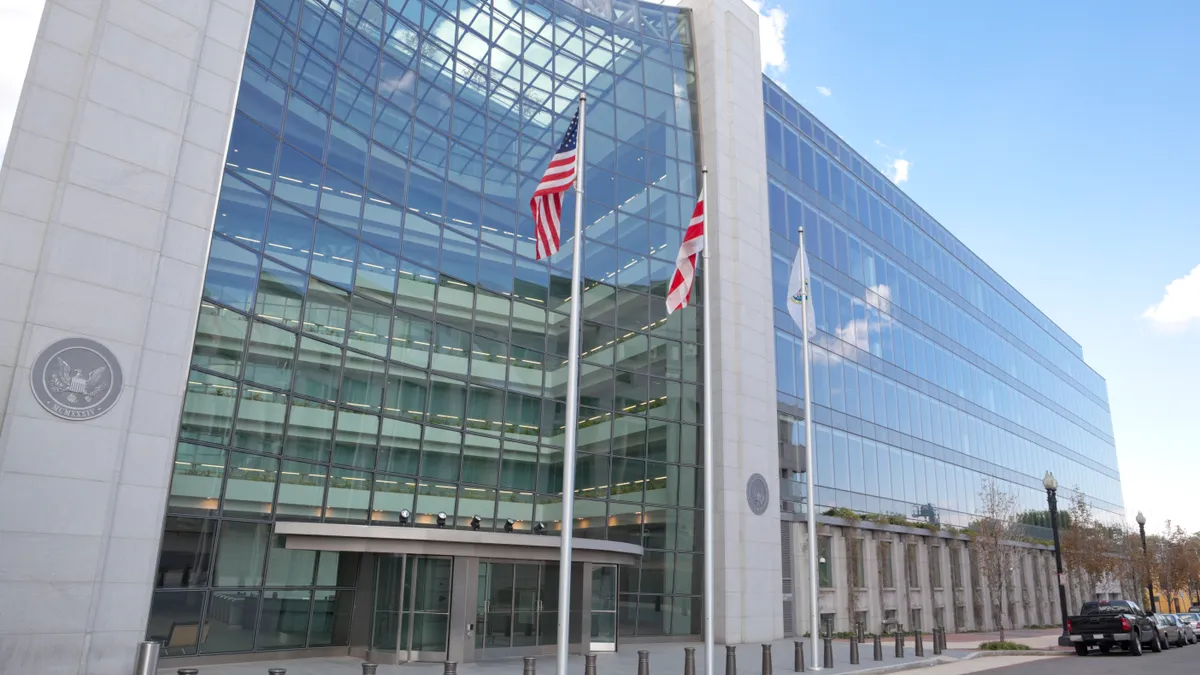Dive Brief:
- The Securities and Exchange Commission (SEC) should require U.S. multinational corporations to disclose country-by-country tax obligations and other data, securing for investors insights on the companies’ risks and financial wellbeing, according to a group pushing for corporate transparency.
- Using its current authority, the SEC should mandate the public release of details on foreign operations such as corporate income tax paid and accrued, net profit and loss, tangible assets and employee headcount, the Financial Accountability and Corporate Transparency (FACT) Coalition said in a report.
- “Due to inadequate [SEC] disclosure rules in the U.S., investors have very little information regarding the material tax and geopolitical risks they face, making it more difficult to navigate complex investment decisions and to be truly in-the-know,” according to FACT Coalition Executive Director Ian Gary.
Dive Insight:
Release of the FACT Coalition report coincides with efforts by Treasury Secretary Janet Yellen to win support among U.S. lawmakers and 130 countries for an agreement overhauling global tax rules, shutting down tax havens and curtailing international tax competition.
The accord — setting a 15% minimum global corporate tax and led by the Organization for Economic Cooperation and Development (OECD) — faces resistance from lawmakers in both parties.
The agreement would apply to companies with annual revenue exceeding 750 million euros ($767 million) and generate about $150 billion in additional annual tax revenue, according to the OECD. It would also reallocate $125 billion of profits from 100 of the world’s biggest companies to countries worldwide.
Although not publicly available, much of the information identified in the FACT Coalition report is already gathered by companies and filed with the Internal Revenue Service. As a result, disclosure would not impose additional costs, according to the coalition, which is a group of more than 100 state, national and international organizations.
“At a time when the international tax system is undergoing major change, investors don’t necessarily know how much a risk a corporation is taking with their money by making aggressive use of foreign tax havens,” Sen. Chis Van Hollen, D-Md., said in a webinar describing the FACT Coalition report.
“The American public and American investors deserve to know the facts about the efforts of multinational corporations to stash their profits in overseas tax havens in order to avoid taxation at home,” Van Hollen said. He is a sponsor of legislation that would require multinationals with more than $850 million in annual revenue to disclose their country-by-country tax obligations.
Investors face an “information gap” when assessing shifting risks and financial conditions at many U.S. multinationals, the FACT Coalition said.
For example, sales of a COVID-19 vaccine by Pfizer has increased the share of foreign income to 75% of the company’s total, changing its tax outlook, the coalition said.
Insufficient disclosure by such companies as McDonalds and Shell may intensify market volatility as investors grow skittish in times of geopolitical instability, such as Russia’s invasion of Ukraine, according to the coalition.
Also, a decision by Amazon to relocate intangible property rights back to the U.S. may prompt changes to its cash flow and tax obligations that would remain undisclosed under current SEC requirements, the FACT Coalition said.
“To truly understand an investment’s risks and opportunities, investors need an understanding of where revenues are generated, where taxable income is booked and the business being conducted in global jurisdictions,” according to the coalition.
“Lack of insight increases the risk of modeling and valuation inaccuracies, potentially leading to inefficient capital allocation decisions — making guesswork where information is readily available,” the coalition said.















